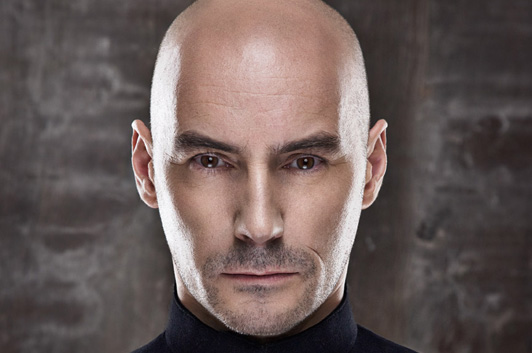MorrisonCon and the Author Ecosystem

photo: Allan Amato
I started seeing reports a while back about MorrisonCon, a weekend-long event that’ll be taking place in Las Vegas at the end of September 2012. For $699 (plus fees and tax), a thousand fans will enjoy a program curated by Grant Morrison, who’s written some of the top characters at both Marvel and DC—right now, for example, he’s working on both Superman and Batman—as well as Supergods, a dizzying combination of pop cultural history, autobiography, and far-out mysticism. He’s also, according to the folks at Ignition Sequence, “the perfect combination of social scientist and creative catalyst to help us re-envision everything that a comic convention could be.” What he’s come up with, they continue, is “[a] jam-packed schedule of unique panels, symposiums, one-on-one signing sessions and late-night mixers,” where attendees will get to spend quality time with Morrison and a select handful of writers and artists whose work he enjoys, like Walking Dead creator Robert Kirkman and My Chemical Romance lead singer Gerard Way.
Over at the LA Times blog Hero Complex, the imminent event is described as “a TED Conference with a dash of Nocturnal Wonderland, The Bowery Poetry Club and, um, maybe a pentagram.” Which sounds about right. It’s all out of my budget at the moment, but it could be quite the show—and, if it goes well, I think it’s a strong scenario for one likely future of author events.
In the publishing and bookselling worlds, there’s been a lot of talk over the last few years about how the traditional bookstore event—where an author shows up, reads from his or her latest book, takes a few questions from the audience, signs books for the fans, and heads back to the hotel—just isn’t cutting it anymore. A lot of folks have worked on developing alternatives, including my own efforts at curating an “author/blogger” series for Brooklyn’s >Greenlight Bookstore and my collaborative efforts in the Lady Jane’s Salon for romance novelists. MorrisonCon is a natural evolution of shows like Amanda Stern’s Happy Ending, which puts authors and musicians together on the same stage, with a bit of that TED conference vibe mixed in—or, as I said when I first heard about the event, the same impulse that drives aspiring screenwriters to spend a weekend with Robert McKee.
But here’s what really interests me about looking at MorrisonCon from that angle: He’s not hogging the spotlight all to himself, but using this show as an opportunity to expose his fans to other major talents. Now, granted, if you’re into comic books, chances are you’re probably familiar with one or two of his guest stars, but some of the audience will be encountering some of the talent for the first time. It’s a recognition that, from the creative professional’s standpoint, comics should not be considered a zero sum game, but a field in which, if you encourage other writers and artists to flourish, you too will benefit from the thriving fandom (if your work is good enough to command their attention).
That’s something that a number of writers whom I admire have known for a while now. I’m thinking of John Scalzi, who opened up his blog, where he gets well over 40,000 visitors a day, to other writers for an ongoing series of guest essays called “The Big Idea,” where they talk about the ideas that drive their latest books. And I’m thinking about Jennifer Weiner, who has given her fans copies of own novels if they send her copies of the receipts of books she’s recommended such as Liz Moore’s Heft.
“Literary culture,” for lack of a better term, is something of an ecosystem—ideally, as I suggested above, one author’s success, by encouraging consumers to read, can lead to the success of other authors and the development of a sustainable market for books. And, although it doesn’t hurt, you don’t have to be a Grant Morrison or a John Scalzi or a Jennifer Weiner to make that happen. (After all, they didn’t just pop out of nowhere.) When I suggest that MorrisonCon might be one possible future of the author event, there’s an obvious objection: What if you’re not big enough to set a similar event in motion, or you’re not in good graces with the sort of author who can?
The best answer I’ve got right now is to do what you can—get to know the authors who are “in your field,” get in touch with them, find out what sorts of things you can do together at regional conferences or by cross-promoting each other online and so forth. If you’re lucky enough to have a publisher-supported book tour, or self-driven enough to put one together on your own, get in touch with other authors in the places you’ll be headed and see what you can cook up. Be as active as you feel comfortable being in social media, and use less of that time to promote your own work and more to celebrate the amazing stuff you see other people doing.
That may not be a path to becoming big enough to lure 1,000 of your fans to a weekend in Vegas—but chances are good that it will put you and your work in front of people who might just become your fans.
10 July 2012 | theory |

 Our Endless and Proper Work is my new book with Belt Publishing about starting (and sticking to) a productive writing practice.
Our Endless and Proper Work is my new book with Belt Publishing about starting (and sticking to) a productive writing practice. 
